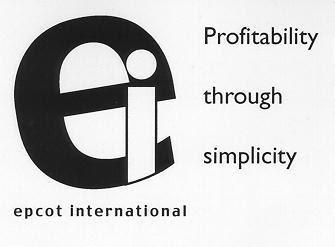Question asked is very legitimate and the ANSWER is
unequivocally YES. However, in order for it to happen there has to be a unique
alliance that would bring bureaucrats, technocrats and business minds on the
same table and work together “hand and glove” to change the global landscape.
Background:
Indian pharma companies with 2005 WTO/TRIPS
agreement took advantage of the need for low cost generics in the developed
countries. They succeeded. However, regulatory bodies (FDA, EMA and others)
were not fully prepared to oversee their manufacturing practices. With time quality
and therefore supply issues have resulted. My conjecture is that in order to
stay profitable not every “t” has been crossed and not every “i” has been
dotted with respect to manufacturing technology and meeting regulatory
requirements.
Unless attention is paid in the improving manufacturing
technologies and complying with regulations Indian companies might not be able
to meet all of the regulatory and quality requirements. This could have long-term
impact on the reputation of Indian companies as the “global pharmacy”.
Many of the Indian pharmaceutical companies have imported
their Active Pharmaceutical Ingredients (API) from China. Chinese API
overdependence has caught the attention of Modi government in India. Government
of India is taking steps to alleviate API dependence from China (Centre
mulls bulk drug policy, Government
working on policy to promote APIs production). This recognition and remediation steps
are of significant value.
My
concern is that unless the right players are involved and timing is impeccable,
Government of India might not be able to meet its “Make in India” plan for
pharmaceuticals and might loose India’s status as the “global pharmacy”.
Indian
companies for the foreseeable future will remain supplier of generic drugs. They
have a significant opportunity to be the supplier of generics to 30+% of the
global pharma market if all the pieces of puzzle fit.
Brand
Company market revenue will be higher due to high drug prices but compared to
generics they will have significantly lower patient base. I do not believe Brand companies will have much roll in this venture as their focus is catering drugs that are under patent.
What all is needed:
With
respect to formulations Indian pharma landscape is fragmented. There are too
many players catering to the same customer base as a result they do not have
economies of scale i.e. not the best manufacturing technologies. Economies of
scale can improve profitability. Same holds for the needed API.
US
PBMs, as the time progresses, will be consolidating. CVS Health and Target
merger is the most recent. PBMs need to leverage their supply costs.
Consolidation of PBMs is one way. The other way is to work with pharmaceutical manufacturers.
Second way will have higher and sustained financial benefits for each
participant.
PBMs
along with a quasi-Indian government body can create pharmaceutical API
manufacturing and formulation companies who can through economies of scale
incorporate best of the technologies to produce quality drugs at the lowest
price to supply the world’s pharma market.
If a
“can-do” team that consists of savvy technocrats, bureaucrats and business folks from
India and the United States can be created and it succeeds; it will change the
global pharma supply landscape. Timing is of the essence and the team will have
to operate on a fast track.
An International
team can be assembled and it can very quickly select pharmaceuticals based on
their revenue, patient need and manufacturing technologies. Reverse calculation
method (3) using total global revenue can be a staring point. I
would not venture out to say what cost reduction is possible but improved asset
utilization, improved product yield, reduced waste and reduced quality approval
time would definitely lower costs. Regulatory bodies will have to play their
part for the success. It would be a global win.
Girish Malhotra
President
EPCOT International
- http://www.wsj.com/articles/SB10001424053111903554904576460322664055328
- http://www.makeinindia.com/sector/pharmaceuticals/
- Malhotra, Girish: A Blueprint for Improved Pharma Competitiveness http://www.contractpharma.com/issues/2014-09-01/view_features/a-blueprint-for-improved-pharma-competitiveness/, Contract Pharma, September 2014
